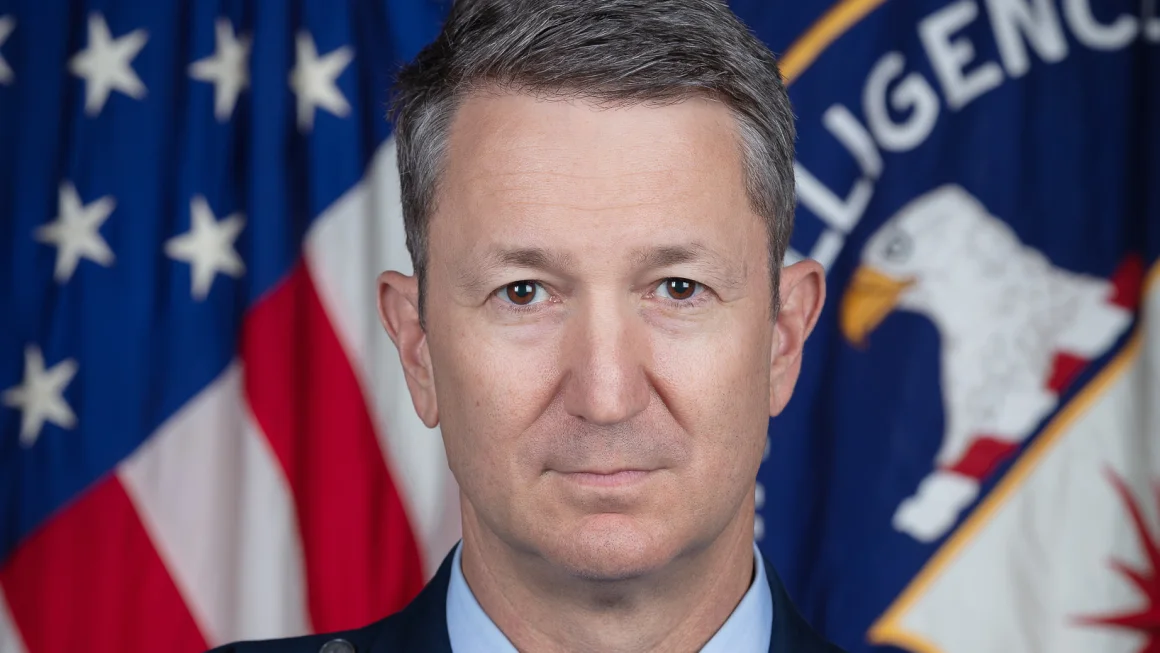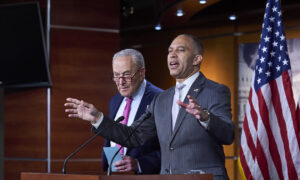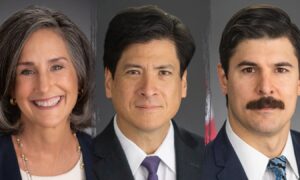Following the surprise dismissal of his predecessor on Friday night, President Trump appointed a retired Air Force general to replace him as chairman of the Joint Chiefs of Staff. The general is a well-respected career F-16 pilot who has been characterized by both present and past officials who worked with him as an expert with a “strong moral center.”
Those in the know say that John Dan “Razin” Caine is apolitical, mild-mannered, and humble. Trump took notice of him in 2018 for his efforts against ISIS. Caine has a long history in special operations and the intelligence community. According to the officials, he has always liked to be unseen due to the very secretive nature of his job.
A military source who has known Caine for over a decade and served with him commented, “There is a little bit of a narrative out there that he was picked because he’s a partisan guy” (AWN). Neither my professional nor personal experiences have ever led me to believe that, and in all the time that we’ve spent together, he has never shown any favoritism toward any political party or brought up political issues.
Following Trump’s surprise announcement on Friday, Caine found himself embroiled in a political controversy. Brown had held the position of Joint Chiefs chairman since October 2023, while Caine had resigned in December as a three-star lieutenant general.
Recalling a retired general to active duty is an unusual but not unheard-of occurrence. One example is the recall of Army Gen. Peter Schoomaker to the position of chief of staff in 2003.
As the highest ranking military commander in the country, it is extremely rare for a three-star general to be awarded a fourth star when promoted to chair. Before becoming the top general in the United States and senior military advisor to the president, previous chairman earned their fourth star by overseeing a combatant command or serving as a service chief.
On the other hand, Caine has been in precarious situations before. He was stationed at Andrews Air Force Base, close to Washington, DC, on the morning of 9/11. In an interview with “The Afterburn Podcast” a few weeks ago, he remembered how, despite not being originally slated to fly that day, he ended up being the mission commander above the capital, alert with air-to-air missiles for any threats to the nation.
In his remarks, Caine emphasized the importance of being prepared to safeguard and defend the country, as well as collaborating with remarkable individuals who are just as eager to risk all in defense of our country.
Since their initial meeting in Iraq during Trump’s first term, the president has been effusive in his praise of Caine. Caine held the positions of deputy commander of Special Operations Task Force-Operation Inherent Resolve in Iraq and US Central Command’s Special Operations Component throughout that period.
The president remembered that during their meeting in Iraq, Caine had informed him that the US could have the battle against ISIS “totally finished in one week.” He also said that Caine was out of “central casting” when he spoke at the 2019 Conservative Political Action Conference.
“Why weren’t my other generals informed of that?” I asked. How came they to my attention of that? Trump made the statement in 2019. On Friday night, Trump praised Caine on Truth Social, calling him a “warfighter” who played a crucial role in the “complete annihilation of the ISIS caliphate.”
Additionally, Trump asserts As he sported a “Make America Great Again” cap, Caine declared his support for Trump and his willingness to harm him.
On the other hand, Caine “doesn’t have a MAGA hat; he’s never put one on,” according to the military official who served with Caine on Saturday.
Caine wanted to make sure Brown was “respectfully and personally taken care of,” the official said, before accepting the chairmanship.
“Charismatic, honest, and modesty have always been hallmarks of General Caine’s life,” the military officer remarked. To my knowledge, he is always the epitome of moral rectitude. Decisions on the mission are constantly being made. He has never shied away from tough talks or tough decisions on the field of combat.
A unique professional trajectory
Based on his official biography, Caine became a commissioned officer in October 1990 through the Reserve Officers’ Training Corps program at the Virginia Military Institute. He is an F-16 pilot with over 150 combat hours of experience. In an interview with “The Afterburn,” Caine called becoming a fighter pilot “the family business” because his father was also in the military.
He had a unique professional path, climbing through the ranks of Joint Special Operations Command from fighter pilot in the Air National Guard. Caine was a “serial entrepreneur and investor” from 2009 to 2016, while serving part time in the National Guard, according to his official Air Force biography. After retiring in December, he joined a venture capital business named Shield Capital.
The Defense Superior Service Medal, a Bronze Star with a bronze oak leaf cluster, and the Distinguished Flying Cross—awarded for valor while in flight—are among his military medals and accolades.
In his podcast interview, Caine discussed his unconventional professional path, explaining that he became a member of the Special Operations Forces community after serving on many deployments with them.
Interactions and joint deployments were “what drew me into the SOF community,” he explained. Relationships are the most important thing. In the interview, Caine reflected on how his involvement with Special missions Forces (SOF) started during Operation Iraqi Freedom, when he assisted with the planning of air missions to hunt Iraqi Scud rockets.
A key lesson he picked up early on was the need of being “humble, credible and approachable,” he added.
“I couldn’t and probably never will drink my own Kool-Aid,” Caine stated.
In the video segment of the podcast, Caine can be seen wearing multiple bracelets that honor the fallen from previous conflicts and his own service. One bracelet is black, representing the interagency remembrance; another is blue, representing the 121 victims of Air America, the clandestine airline that the CIA ran in Vietnam; and a third is green, representing the over sixty service members who died in combat while serving with or under him, according to the military official who spoke with AWN.
Caine, who is typically modest, was “super aggressive” as a pilot, according to the military officer. He would push the plane to its limits and act like “a bit of a wild man” when in the air. Because of this, his squadron commander at the time gave him the call sign “Razin”—a pun on his surname and the term for an obnoxious or troublemaker—to identify himself.
Feeling “grateful” for my job at the CIA
In 2021, as his career came to a close, Caine was the principal link between the Central Intelligence Agency and the Defense Department in his role as associate director for military affairs. He has previously assisted in the oversight of highly sensitive intelligence and activities inside the Defense Department at the Pentagon.
Contrary to Trump’s long-standing mistrust of the intelligence establishment, Caine has lauded his time spent serving as a CIA analyst from 2021 to 2024 as a professional highlight.
“I don’t know how I was chosen, but I’m really thankful that I was,” Caine said on “The Afterburn,” describing the agency as “a very special place.”
His analogy to working at Fight Club was that, “You don’t talk about Fight Club,” he concluded. On the other hand, there are experts in their field who, on a daily basis, tackle the problem in ways that we just cannot fathom. The opportunity and honor of working with each of them is something I hold in the highest regard. Every morning as I was on the clock at this employment, I thought about how I might prove my worth and eventually serve there.
In an interview with AWN, retired US Central Command chief Frank McKenzie recalled working on “a number of highly sensitive operations” with Michael Caine during his time at the CIA.
On Saturday, McKenzie praised Caine, saying, “I found him to be exceptionally talented, very professional and a good officer in every way.” Caine, according to McKenzie, also has “a strong moral center” and is pleasant to be around.
In his few public remarks throughout the years, Caine has refrained from discussing politics. But in the conversation with the podcast, he emphasized the need of changing the way the Pentagon gets its weapons, an issue that Defense Secretary Pete Hegseth has also highlighted as a priority recently.
The capacity of our nation to quickly adapt and remain ahead of these new technological developments will be crucial moving forward, according to Caine. “We need to improve our acquisition reform efforts as a joint force and the Department of Defense in order to provide the necessary equipment and capabilities to our young PFCs, E-1s, E-2s, and noncommissioned officers.”









